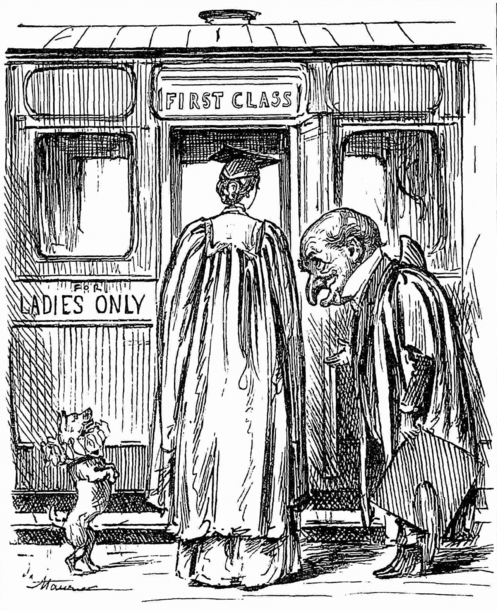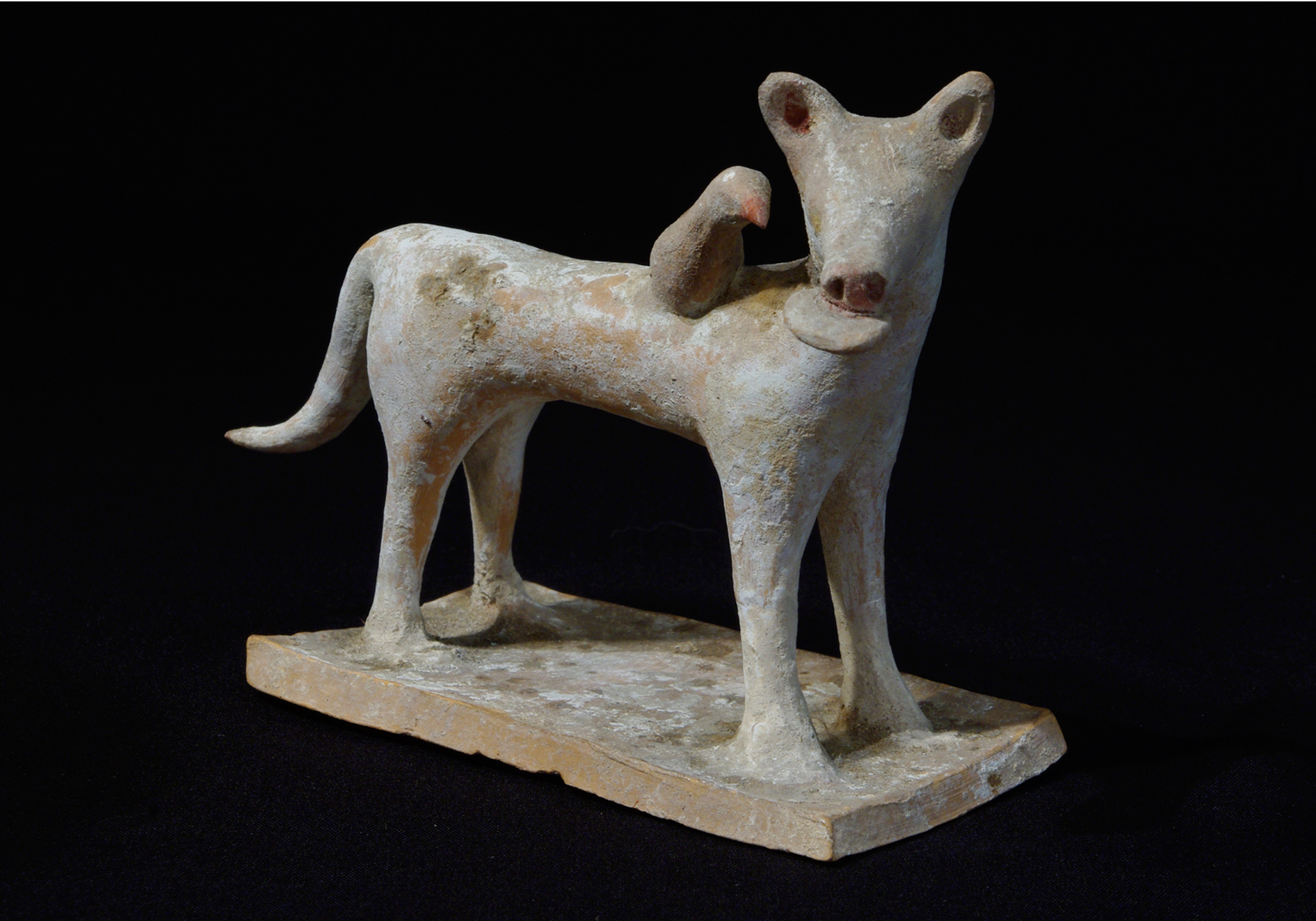
Dr Jacob Currie
Fellow
Welcome to Classics at Girton College. On this page, you will find key information about the Girton Classics students, Girton's resources for Classicists, guidance on admissions and super-curriculars, course information, career destinations and relevant Girton Fellows.
The Students
 The Girton Classics community usually consists of between 10 and 15 undergraduates across four years, plus graduates, and is notably strong in inter-year support, fostered by termly whole-cohort academic events. We welcome students for all strands of the Classics Tripos and MML with an ancient language. The student Classics society is named after Agnata Ramsay, the only candidate in 1887 to be placed in the first division of the First Class of the Classics Tripos examination, an achievement honoured with a cartoon in Punch. Girton Classicists are often leaders in wider College, Classics Faculty and University communities.
The Girton Classics community usually consists of between 10 and 15 undergraduates across four years, plus graduates, and is notably strong in inter-year support, fostered by termly whole-cohort academic events. We welcome students for all strands of the Classics Tripos and MML with an ancient language. The student Classics society is named after Agnata Ramsay, the only candidate in 1887 to be placed in the first division of the First Class of the Classics Tripos examination, an achievement honoured with a cartoon in Punch. Girton Classicists are often leaders in wider College, Classics Faculty and University communities.
Resources
 A donor-funded grant for relevant book purchases is available every year to all Girton Classicists. There are also bursaries for those eligible, competitive funds for travel to Classical lands, and help with pre-course tuition if your offer demands it. We are the only college to have an antiquities museum, the Lawrence Room, comprising material found on the College site and donations from across the ancient world. The star is Hermione Grammatikē, a Roman portrait mummy, excavated by William Flinders Petrie in the Fayum early in 1911. Students have the option to be trained as volunteer curators.
A donor-funded grant for relevant book purchases is available every year to all Girton Classicists. There are also bursaries for those eligible, competitive funds for travel to Classical lands, and help with pre-course tuition if your offer demands it. We are the only college to have an antiquities museum, the Lawrence Room, comprising material found on the College site and donations from across the ancient world. The star is Hermione Grammatikē, a Roman portrait mummy, excavated by William Flinders Petrie in the Fayum early in 1911. Students have the option to be trained as volunteer curators.
With active Fellows specialised in both Greek (Dr Helen Van Noorden, Director of Studies) and Latin (Dr Jacob Currie), much of the supervision in literature and language is currently covered in College. A distinctive feature of Girton 1st year Classics supervisions is the variety of assignments, which build into the programme the development of presentation skills, collaboration and critical research skills. The Director of Studies aims to tailor supervisions for each student, drawing in experts across Cambridge.
The best advice we can give to prospective applicants is to read widely and absorb as much as you can about the ancient world. Note down for yourself everything that you read and what you get out of it. Follow up what you enjoy. Be curious, look up terms, events and names you encounter. Here are some further resources which many Oxford and Cambridge colleges agree are valuable:
Omnibus (archive of sixth-form magazines)
In Our Time (Radio 4), History and Culture archives
The three-year Classics Course takes account of whether you have two ancient language A-Levels or one. The four-year version of the course, whose first year focuses on Latin and then Greek, is for those who have never studied either ancient language, or who have less than A-level experience in Latin. This course is unique in the UK in enabling students to take both Latin and Classical Greek from scratch to a high level. Moreover, the Faculty and College aim to ensure that at some point in the Classics degree, whatever strand of the course students follow, they receive support to explore Classical lands first-hand.
In an eight-week term at 1A, up to four assignments will be set on topics in ancient literature and four on students’ two chosen options (two of Philosophy, Ancient History, Art and Archaeology, and Linguistics and Philology; students on the four-year course have the chance to study three or four of these options over two years). In the 1B year, students in consultation with their Director of Studies form their own programme of text-based and other modules. Assessment is through a mix of exams and coursework in every year. Until completion of Part 1B, students also have at least one learning assignment in Latin and Greek every week. At Part II, students build their own profile from a great range of more specialist modules, including papers borrowed from other Triposes. Many students choose to write a dissertation as one of their four options.
 My A-levels were in English Literature, Religious Studies, and History, which gave me a decent sense of the various disciplines involved in Classics. My choice of Classics came from wider reading in each of those subjects leading me into antiquity. In my statement I wrote about the Greek poetry and philosophy I had read in translation, and at interview I was guided to talk about Sappho and Herodotus; as it turns out, I'm now going into my final year a committed Latinist - you never know where you'll end up in a degree as broad as Classics.
My A-levels were in English Literature, Religious Studies, and History, which gave me a decent sense of the various disciplines involved in Classics. My choice of Classics came from wider reading in each of those subjects leading me into antiquity. In my statement I wrote about the Greek poetry and philosophy I had read in translation, and at interview I was guided to talk about Sappho and Herodotus; as it turns out, I'm now going into my final year a committed Latinist - you never know where you'll end up in a degree as broad as Classics.
The best thing about Classics at Girton is the wisdom and support of the subject community, from the unfailing guidance of your Director of Studies to the strength of Girton's Latin provision and the friendliness of your college cohort. The college grounds have their own way of supporting a classical education too: the Orchard and the wild strawberries and blackberries along the perimeter walk give a bit of life to the Eclogues and Georgics that few centre colleges can provide.
In Girton, classicists are taught similarly to anywhere else, but with two key differences: firstly, Girton's classics Fellows between them cover a great number of supervision areas in the first year(s), easing the transition from school education and giving them a close sense of how best to support you; secondly, we run regular 'Collections', meetings of all years to be tested in a low-pressure environment, giving Girton students a unique level of exam practice and confidence. These can seem intimidating at first, but often prove to be opportunities for learning from peers and other year groups - and I always feel glad of them by the time exams come around. Girton itself has been instrumental in managing my workload; the cycle back from town is perfect for work-life balance, and the college's open architecture makes it easy to socialise in downtime.
If you're hovering between subject choices, like I was before application, I'd recommend listening to the BBC's 'In Our Time' podcast. Each episode is an hour long, on topics ranging from classical authors to scientific discoveries, and brings three academics together (often characters you may meet in Cambridge) to discuss and explain. I found them perfect for figuring out where my enthusiasms lay, and what sort of academic discussion I was most interested in having; when you find yourself thinking of what you'd have asked/said if you were there, then you know you've found your place.
In terms of college choice, the cliche is everyone ends up where they're meant to - and I wouldn't argue with that. Look through photographs, read up on academics, visit if you can, but ultimately go with what 'feels right', and be open to being surprised, as I was.